Jaarlijks komen er Amerikaanse studenten met een Fulbright beurs naar Nederland. Studenten doen een volledige masteropleiding, onderzoek voor hun PhD of staan voor de klas op Nederlandse scholen. Deze groep studenten deelt graag hun ervaringen aan iedereen in het basis- en middelbaar onderwijs in Nederland. ‘Amerikaan in de klas’ maakt dit mogelijk: wanneer u uw school opgeeft via onderstaand formulier, zal een van de Fulbrighters een bezoek brengen.
Classroom Visit Program: Amerikaan in de klas
Waarom een ‘Amerikaan in de klas’
Al sinds 1949 zorgen academische uitwisselingsprogramma’s er voor dat Amerikanen en Nederlanders elkaars land en cultuur beter leren kennen. Wij noemen dit het creëren van wederzijds begrip, naar de missie van Senator J. William Fulbright. Natuurlijk zijn er veel meer manieren om dit doel te bereiken dan enkel via het hoger onderwijs. Fulbrighters brengen graag een bezoek aan basis- en middelbare scholen en kunnen op heel veel unieke manieren een leerzame toevoeging zijn aan uw lesprogramma:
- Fulbrighters presenteren over hun eigen onderzoek. Denk aan een geschiedenis student die wat komt vertellen over een onderwerp dat verband houdt met de Nederlandse of Amerikaanse geschiedenis of een geneeskunde student die tijdens biologie presenteert over een relevant onderwerp.
- Fulbrighters gaan in gesprek met uw klas en wisselen (culturele) ervaringen uit
- Fulbrighters leveren een bijdrage aan de Engelse spreek- en luistervaardigheid
- Fulbrighters kunnen tijdens verkiezingen meer inzicht geven in de Amerikaanse politiek
De mogelijkheden zijn eindeloos en u bent vrij om het bezoek zelf vorm te geven.
Hoe krijg ik een ‘Amerikaan in de klas’
Vul onderstaand formulier in, dan gaan wij voor u aan de slag! Wij vragen u om een korte motivatie te schrijven, waarom u een ‘Amerikaan in de klas’ wilt. Leg hier in duidelijk uit:
- Wat het doel van de ‘classroom visit is’
- Welke (gespreks)onderwerpen belangrijk zijn
- Wat de leeftijd van de leerlingen is
- Wat het adres van uw school is
- Wanneer u graag een ‘Amerikaan in de klas’ wil
Nadat wij uw aanvraag ontvangen hebben, zullen wij contact opnemen en u koppelen aan een van onze Fulbright studenten of onderzoekers. Deelname is gratis, de Fulbright Commission verzorgt de reiskosten van de studenten.
Participants 2025-2026 (in progress and in random order)
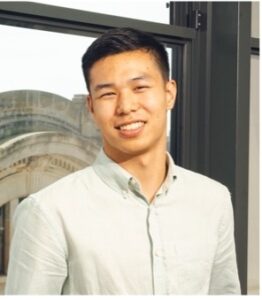
Ryan Peng
Ryan is a student at TU Delft pursuing an MSc in Integrated Product Design. Originally from Atlanta, Georgia and Memphis, Tennessee, he earned his bachelor’s in Design Engineering and Computer Science from Brown University in Rhode Island. His work focuses on implementing positive changes at scale through the design of everyday consumer products. Most recently, he worked on the New Product Integration team at Tiffany & Co., and he hopes to continue working at the bridge of design and engineering after graduation. In his free time, Ryan enjoys exploring the Netherlands, trying new foods, and figuring out how things are made.
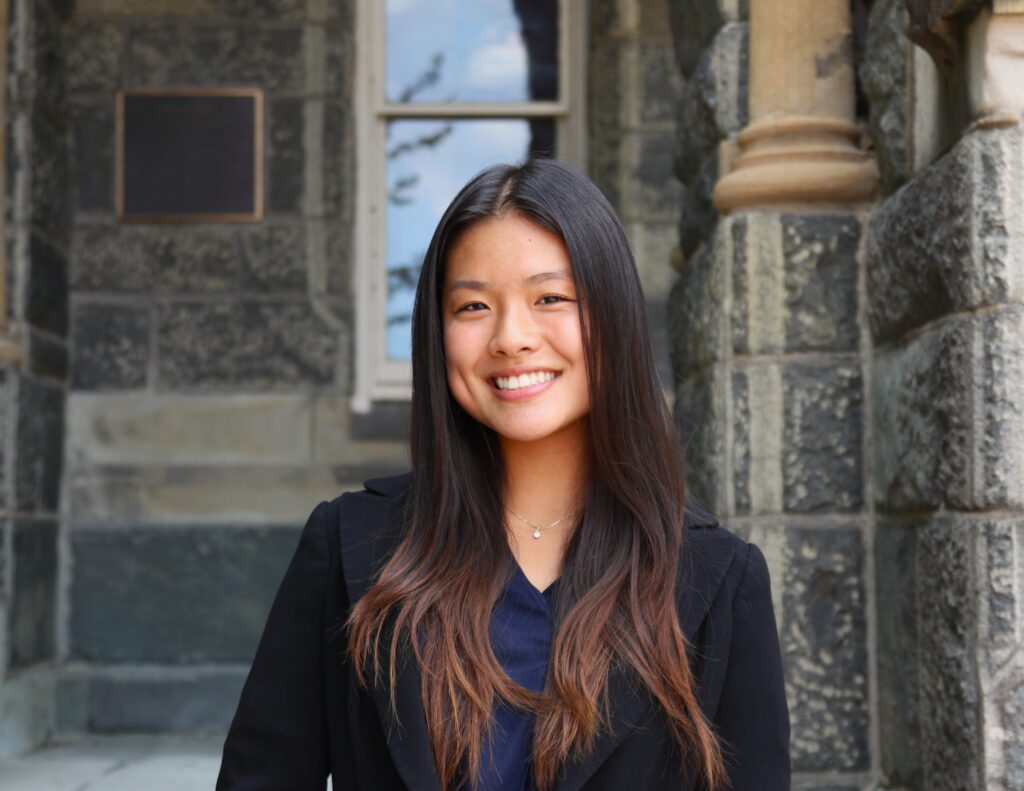
Leah Chen
Leah is a current student at Vrije Universiteit pursuing her Master’s of Health Sciences with a concentration in International Public Health. She is interested in understanding health disparities that affect migrant women. She hopes to implement public health initiatives that can break down social barriers to increase rates of cervical cancer screening. Leah calls Ellicott City, MD home, and she received her Bachelor’s in Physics and minor in Public Health from Georgetown University in Washington, DC. She hopes to use her public health studies in a medical career, where she hopes to integrate patient connections with wide-scale public health change. For fun, Leah is training for the Amsterdam Marathon and she loves to hike, travel, and try new foods in her spare time!
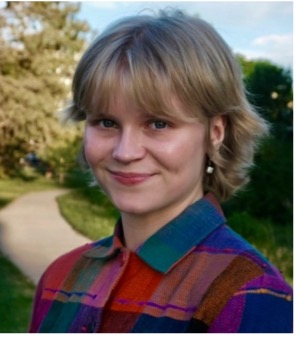
Mya Vander Pol
Mya is a student at the University of Amsterdam pursuing her MSc in Conservation and Restoration of Cultural Heritage with a specialization in contemporary art. She is interested in researching the preservation of video art and the threat of technological obsolescence, but also enjoys traditional artforms like painting and sculpture. After spending some of her childhood in Jakarta, Indonesia, Mya learned to value international education and travel. Before moving to the Netherlands, she lived in Denver, Colorado while pursuing her bachelor’s degree in Art History and completing internships in museum collections, exhibit development, and outdoor sculpture conservation. Having lived so close to the Rocky Mountains in Denver, Mya loves to boulder, snowboard, and hike in her free time.
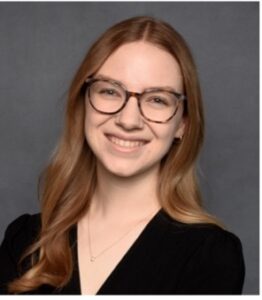
Mia Rode
Mia is a bioethics researcher at UMC Utrecht where she is exploring ethical guidelines and patient decision making in regenerative medicine clinical trials. Her research currently focuses on the experience of pediatric participants and their guardians in a clinical trial for the use of prime editing, a type of gene editing tool, to correct the genetic causes of different metabolic disorders. Through her work, she hopes to develop educational frameworks physicians can use to help patients make decisions about these new treatment options and promote discussions about responsible research and ethical applications of scientific advancement. Mia is originally from Chicago, Illinois and attended the University of Illinois where she earned her Bachelor’s degree in Molecular and Cellular Biology and also minored in Art History. She is passionate about explore interdisciplinary spaces connecting science and the humanities. Following her Fulbright grant, Mia hopes to attend medical school, where she hopes to explore how to help patients understand and navigate an increasingly exciting yet increasingly complex future of healthcare and make personalized treatment decisions that support their unique goals and values. In her free time, Mia enjoys cooking, reading, and playing flute.
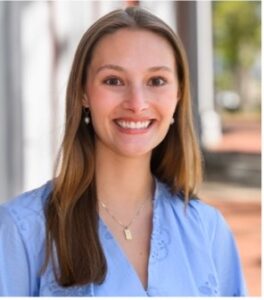
Kristina Ayers
Kristina is a public health researcher at Maastricht University and Maastricht UMC+, where she investigates socioeconomic barriers to participation in surgical clinical trials for pancreatic cancer. Her research focuses on health disparities, particularly how social determinants of health can disproportionately affect vulnerable and underserved populations. Through her work, she aims to increase equity in clinical trial accessibility and ensure that those most at risk for poor health outcomes have the opportunity to benefit from cutting-edge medical research. Originally from the small town of Waterford, Virginia (about an hour and a half outside of Washington, D.C.), Kristina earned her Bachelor’s degree in Biology (pre-medicine) from Washington & Lee University in Lexington, Virginia, where she also minored in Music and Poverty & Human Capability Studies. Following her Fulbright grant, Kristina plans to apply for medical school, where she hopes to integrate patient-centered care with public health strategies to drive meaningful, system-level change in healthcare delivery and outcomes for diverse communities. Outside of her work, Kristina enjoys singing in choir, exploring new cities, hiking and camping, and getting lost in a good book.
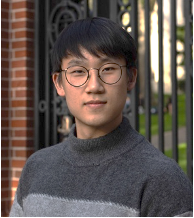
Kevin Kim
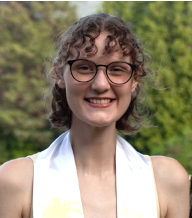
Aili Ramsden
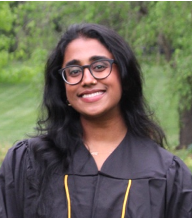
Aashi Mendpara
Aashi is an anthropology researcher at the Trimbos Instituut in Utrecht. She is interested in exploring alternative forms of care and how underserved communities facing affliction and structural violence build systems of support that traditional institutions may not recognize as legitimate. In the Netherlands, she is researching how Dutch harm reduction creates better outcomes for people pursuing sobriety. Born in Orlando, Florida, Aashi attended Johns Hopkins University in Baltimore, Maryland, where she majored in Neuroscience and Medicine, Science, and the Humanities, with a minor in Anthropology. At Hopkins, she led harm reduction research, volunteered with community healthcare programs, and directed humanities symposiums. She hopes to draw on her education and research training to integrate medicine and anthropology in order to create community-based healthcare models. In her free time, Aashi enjoys hiking and running, trying new restaurants, and writing.
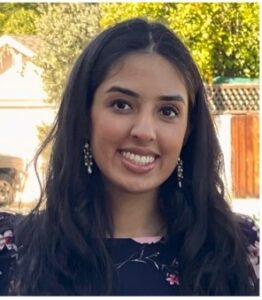
Ishita Verma
Description to follow.
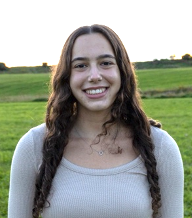
Grace Behr
Description to follow.
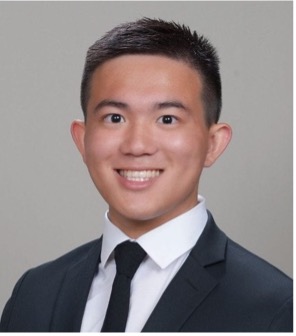
Conner Huey
Description will follow.

Emma Rens
Description to follow
Ervaringen van deelnemers
Benieuwd naar de ervaringen van Fulbrighters? Lees hieronder een verslag van een recent bezoek in de klas.
 Samuel Chen, Julia Jung & Catherine Knox
Samuel Chen, Julia Jung & Catherine Knox
How would you explain America’s upcoming election in fifty minutes or less? Could you do it across a language barrier, across a cultural barrier, in a country accustomed to over a dozen political parties, instead of just two? Doing so would require a kind of Rosetta Stone: something to translate not just the words electoral college and absentee ballot, but also their implications, what they might mean for Americans and Europeans alike.
My fellow Fulbrighters Julia Jung (Utrecht University), Catherine Knox (Vrije Universiteit Amsterdam) and I tried our hands at translation last month. Set to teach a short class on the U.S. election system at Dorenweerd College in Gelderland, we tried to create a lesson plan that would encourage a more nuanced understanding of the imminent vote. We included definitions for the relevant vocabulary – nationalism, political platform, etc. – and activities to help illustrate the “winner takes all” logic of electoral points. But we were writing for an invisible audience, with no way of knowing how the lesson would be received, or if it would be understood.
Arriving at the school, we received encouragement. The space itself seemed reassuring – set back on a tree-studded hill, the high school was open, bright, filled with the same type of nervous energy we remember from our own teenage years. Inside, the teachers who had answered our late-night emails and deciphered COVID regulations to bring us in all assured us that the students were excited and receptive. The students themselves – somehow already taller than us at just fifteen – took their seats respectfully, listened closely, participated tentatively. As the lesson marched along, we loosened, seeing that the words were being absorbed. But the concepts? Did they translate? We couldn’t know until the final minutes of the class, the time when we asked “Any questions?” and waited, nervously, for signs of comprehension.
In each class, the silence after the question seemed to stretch impossibly long. Twenty or so students, suddenly hushed, as if a cleared throat or muffled cough would be met with an invitation to speak. We waited with tightened stomachs, wondering whether we spoke too quickly, too slowly, too softly. But a hand eventually found itself raised, and a question issued forth with thoughtfulness and engagement beyond what we had expected. With the question, the classroom shifted from monologue to dialogue, and we remembered the reason for our time here, both in Gelderland, and in the Netherlands in general: to foster dialogue in every interaction, and to connect despite barriers.
Speaking with the students at the end of the lesson, we felt this connection, and are grateful to Dorenweerd College for letting us into their lives, and to the Netherlands’ Fulbright commission for allowing us to forge such connections in a time of such uncertainty.



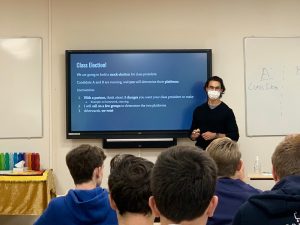 Samuel Chen, Julia Jung & Catherine Knox
Samuel Chen, Julia Jung & Catherine Knox